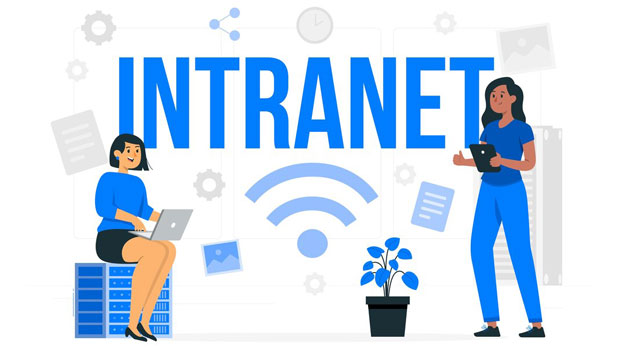When enterprises opt to purchase sock s5 proxies, controlling costs becomes a critical factor for maximizing ROI and ensuring long-term operational efficiency. Socks5 proxies offer a range of benefits, such as enhanced security, faster data processing, and greater anonymity. However, as the demand for proxy services grows, so do the associated costs. Thus, finding ways to reduce expenses while maintaining high-quality service is key. This article will explore practical strategies for enterprises to manage costs effectively when purchasing Socks5 proxies, ensuring they meet their needs without exceeding budgetary limits. 1. Understand Your Proxy Needs ClearlyBefore purchasing any Socks5 proxies, it is crucial for enterprises to have a clear understanding of their specific needs. Different businesses have different usage patterns, and proxies are often priced based on factors such as speed, bandwidth, location, and the number of IP addresses needed. Identify Usage Volume: The first step is to determine how many proxies your business will require. For example, if you're running a marketing campaign or gathering data from multiple websites, you may need hundreds or even thousands of proxies. However, if you only need proxies for light tasks, such as occasional web browsing, a smaller volume may suffice. Estimate Data Transfer Needs: Enterprises should also analyze the volume of data they expect to transfer. Socks5 proxies vary in their bandwidth capacities, and purchasing proxies with excessive data transfer capabilities may be an unnecessary cost if your business doesn't require that much bandwidth. Consider Geographical Needs: Socks5 proxies often come with various location options. If you need proxies from specific countries for geo-targeting purposes, such as accessing region-restricted content or conducting market research in specific regions, it’s important to identify the geographic distribution you require to avoid overspending on unnecessary regions.2. Select the Right Proxy ProviderNot all proxy service providers are created equal, and choosing the right provider can significantly impact the overall cost of the proxies. It's essential to evaluate potential providers carefully, considering factors such as reliability, speed, and customer service. Compare Prices and Plans: Start by reviewing multiple proxy service providers. Look for competitive pricing and flexible plans that align with your enterprise's usage requirements. Many providers offer tiered pricing models based on the number of proxies and the level of service, so choose one that best fits your needs. Evaluate the Quality of Service: While cost is important, the quality of the service should not be overlooked. Cheap proxies may come with performance issues such as slower speeds or frequent downtimes, which could hurt your business operations. It’s better to opt for a slightly higher-priced but more reliable provider than risk inefficiency and performance degradation with a cheap option. Consider Dedicated vs. Shared Proxies: Dedicated Socks5 proxies are more expensive than shared proxies, but they offer better performance and privacy. If your enterprise values speed and security, dedicated proxies are a better choice. However, if you're on a tight budget and can tolerate some limitations, shared proxies may be a more affordable option.3. Optimize Proxy Usage to Maximize ValueOnce you have purchased the necessary Socks5 proxies, optimizing their usage can go a long way in controlling costs and maximizing their value. Proper management and deployment of proxies are critical to avoid waste and inefficiency. Monitor and Limit Proxy Usage: Regularly monitor your proxy usage to ensure that you're not overusing or underusing them. If proxies are idle or not needed for specific tasks, it's better to release them to avoid paying for unused resources. Rotate Proxies Strategically: Many enterprises make the mistake of overusing a single proxy ip, which can lead to blockages or performance issues. By rotating proxies regularly, you can ensure that your activities remain undetected and minimize the chances of encountering restrictions, which could require additional resources or costs to resolve. Leverage Automated Tools for Proxy Management: Some proxy service providers offer automated tools for managing and rotating proxies. These tools can help streamline the process and ensure that proxies are used efficiently. By using these tools, you can reduce human error and avoid unnecessary expenses caused by improper proxy management.4. Avoid Unnecessary Features and ServicesWhen purchasing Socks5 proxies, be mindful of the additional features or services that may increase the price unnecessarily. Some proxy services offer premium features such as high-end encryption, dedicated customer support, or advanced security options, but these may not be necessary for your specific needs. Evaluate Feature Necessity: Only pay for features that directly benefit your enterprise. For instance, if you’re not dealing with sensitive data or high-security tasks, then high-end encryption may not be essential. By focusing on your core requirements and excluding unnecessary features, you can save money. Opt for Pay-As-You-Go Plans: If your enterprise doesn’t require a constant flow of proxies, consider pay-as-you-go plans or flexible usage options. This can help avoid monthly subscriptions or contracts that result in overpayment, especially if your needs fluctuate over time.5. Negotiate Pricing and ContractsAnother effective way to control costs is by negotiating with the proxy provider. Many providers are open to negotiation, especially for large-volume contracts. By securing a better deal upfront, enterprises can save significantly over time. Ask for Discounts on Bulk Purchases: If your business requires a large volume of Socks5 proxies, inquire about bulk pricing or discounts. Many providers offer discounts for long-term or high-volume contracts, which can make a significant difference in your overall cost. Explore Long-Term Contracts: Some proxy providers may offer lower rates for long-term commitments. If your enterprise plans to use proxies for an extended period, locking in a long-term contract could result in better pricing and lower overall costs. Request Custom Pricing Plans: In some cases, providers are willing to tailor their pricing to fit your specific requirements. If your business needs a combination of features or a unique proxy setup, don’t hesitate to ask for custom pricing.6. Regularly Review Your Proxy Needs and CostsCost management is an ongoing process. Regularly reviewing your proxy needs and the associated costs can help identify areas where savings can be made. Track Performance and Costs Over Time: Continuously track the performance of your proxies and compare it to the costs you are incurring. If certain proxies are underperforming or not needed anymore, consider switching to more cost-effective alternatives. Evaluate Market Changes: The proxy market is constantly evolving, and prices may fluctuate over time. Stay informed about market trends and new offerings that may provide better value or cost-saving opportunities.By continuously evaluating and adjusting your proxy strategy, you can ensure that your enterprise is always getting the best value for money.Purchasing Socks5 proxies for an enterprise is not just about finding the cheapest option; it's about balancing cost, quality, and performance to achieve optimal results. By clearly understanding your needs, selecting the right provider, optimizing proxy usage, avoiding unnecessary features, negotiating better deals, and regularly reviewing your strategy, you can effectively control costs while ensuring that your business gets the most out of its proxy services. By following these strategies, you can maximize your ROI and ensure that your enterprise's operations run smoothly without overspending.
Nov 12, 2025



































































